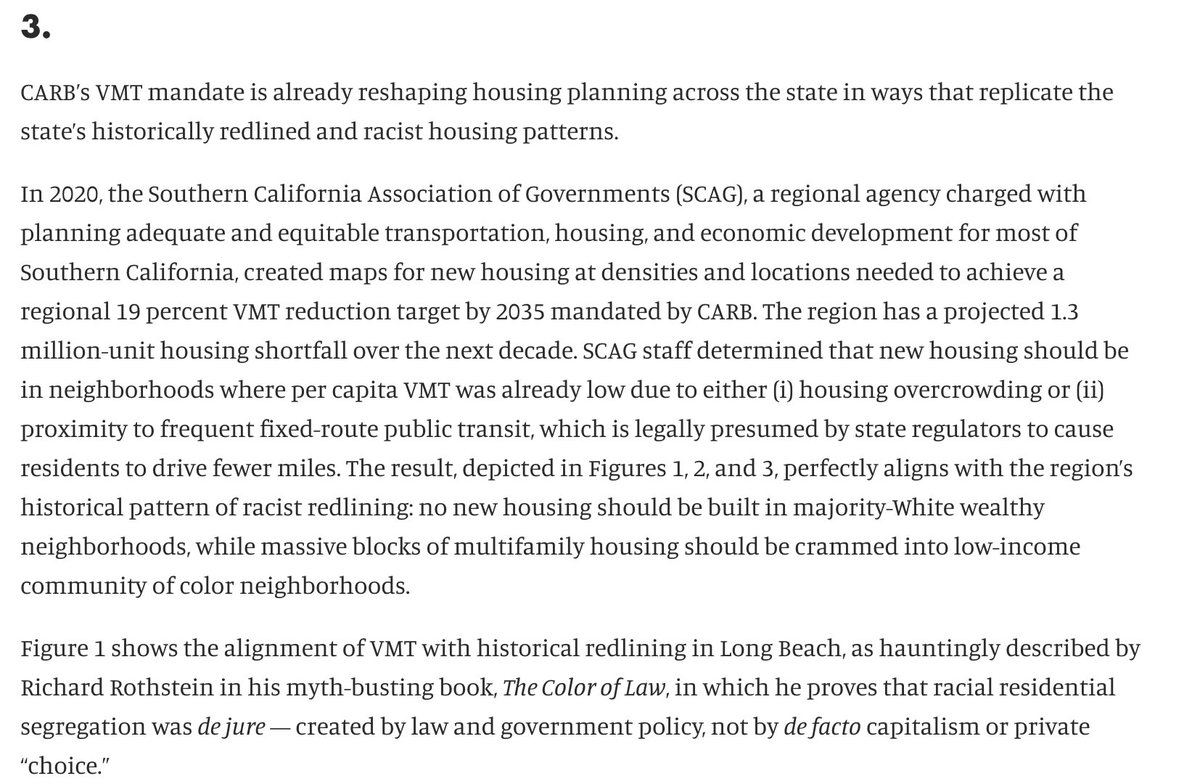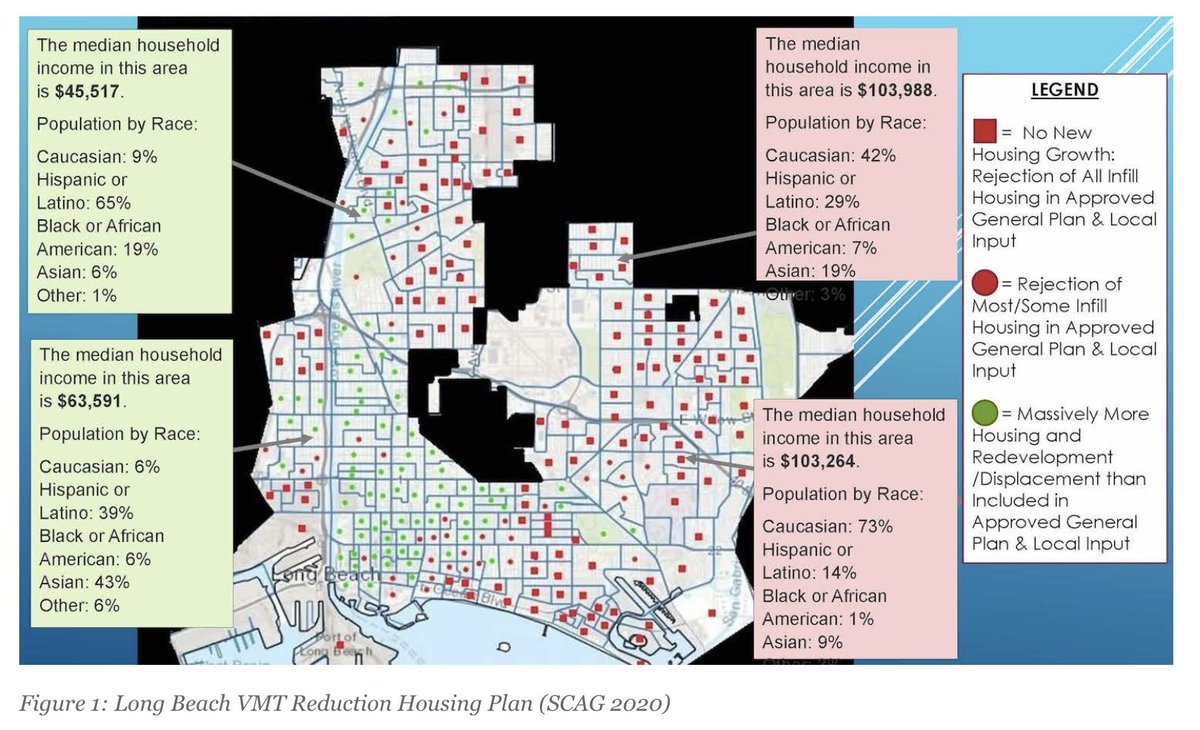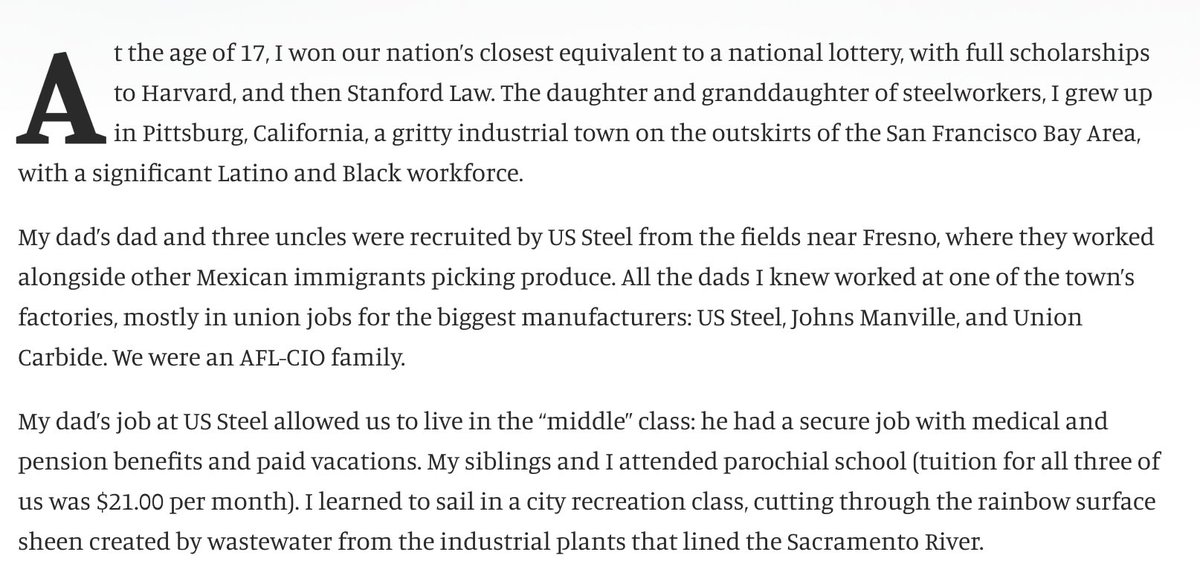
A thread on Jennifer Hernandez's latest impassioned screed against CA climate policy and the racially disparate burdens of its effect on energy & housing costs. (Preview: she makes a few great points, goes off rails on others.) 1/14
https://twitter.com/atrembath/status/1427669303055110147
Best points:
1) Since climate change results from *global* emissions, its dumb for CA climate policy to prioritize emission reductions *within the state.*
We should focus instead on developing low-cost, low-GHG tech & living patterns for replication beyond our borders. 2/n
1) Since climate change results from *global* emissions, its dumb for CA climate policy to prioritize emission reductions *within the state.*
We should focus instead on developing low-cost, low-GHG tech & living patterns for replication beyond our borders. 2/n

2) CA's "affordable housing policy" of subsidizing a handful of very-high-cost multifamily buildings and allocating units by lottery deserves the scare quotes.
A serious affordable housing policy would take construction costs seriously. 3/n

A serious affordable housing policy would take construction costs seriously. 3/n


3) It's both grossly unfair and bad climate policy for CA to put burden of VMT reductions on new homes while doing nothing about high VMT by existing homeowners. 4/n 

4) Any policy that raises cost of basic necessities (housing, energy, food) is going to be burdensome for poor people, and in the U.S., that also means a racially disproportionate burden. Climate policymakers should be thinking about how to mitigate this burden. 5/n
Alongside the very good points above, there's a lot in this essay that's dubious or worse.... 6/n
First, Hernandez says zoning for high-density bldgs near transit is "racist" if the communities are predominantly minority. Yet doing so increases wealth of minorities who own homes in the communities, & virtually all studies find that new...
7/n

7/n


... apartment buildings reduce rents of existing units nearby. And, w/in regions, new market-rate units rapidly free up more affordable units across the region. 8/n
lewis.ucla.edu/research/marke…
papers.ssrn.com/sol3/papers.cf…
lewis.ucla.edu/research/marke…
papers.ssrn.com/sol3/papers.cf…
So while CA should *also* upzone wealthy white neighborhoods, a policy of upzoning areas near transit (even if predominantly minority) is not "racist" in intent or effect. 9/n
2d big problem with Hernandez's essay is a dangerous nostalgia.
The fact that leveraged investments in SFHs were great for building family wealth *while the supply of housing was being curtailed* tells us nothing about whether that investment strategy is prudent today. 10/n
The fact that leveraged investments in SFHs were great for building family wealth *while the supply of housing was being curtailed* tells us nothing about whether that investment strategy is prudent today. 10/n

If CA follows Hernandez's prescriptions & liberalizes the supply of low-cost homes (such that prices gradually revert to cost of construction), those who use their savings for down payments in the meanwhile will destroy their family wealth, not build it. 11/n
Nostalgia also colors the analysis when Hernandez pines for union jobs in the fossil-fuel sector and pisses on universalist income-support policies. 12/n 





An income-redistribution policy that relies on unions in a small monopolistic sector of the economy to redistribute income is close kin to a housing policy that relies on lotteries to distribute a handful of affordable units. Most of the working class gets shut out. 13/n
Nostalgia is a powerful emotion, but it's no better as a guide for CA housing & climate policy than it was for Trump climate and housing policy. (But don't lose sight of Hernandez's good points, too.) 14/end
• • •
Missing some Tweet in this thread? You can try to
force a refresh






